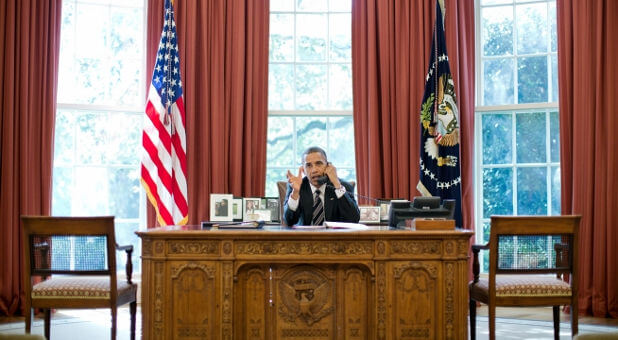This election cycle has been one of the most interesting in modern history. Most observers agree that the nation was split down the middle on their opinions of the character and vision of the candidates. Without assigning blame, I would like to ask the question: How is it that a campaign of hope and change has resulted in such division?
The answer is as simple as the question is puzzling. Our primary division stems from two things: justice concerns among minorities (black, Hispanic and Asian) and a very liberal agenda concerning personal liberty, energy strategy and foreign policy. These are questions, according to President Obama, about the foundational values we want the nation to be built upon. It seems to me that whites in the nation are still leaning slightly more toward conservative values. Unfortunately the GOP minorities (blacks, Hispanics and Asians) who represent almost one out of four voters, feel that there is no place for them in the Republican ranks.
For years, I have presented the fact that many African-Americans and Hispanics have voted on justice issues such as poverty while evangelical Christians focused on righteousness issues. Rush Limbaugh is wrong when he said that the divide in the nation has to do with those who believe in “Santa Claus” and those who don’t. Rush’s rhetoric sounds good but is not based in reality.
The Obama campaign forced the nation to look at several “moral issues” that were based on a different kind of grid. If the GOP had spoken a concrete vision concerning revitalization of urban America, systematic immigration reform and a unifying vision of the support of traditional marriage, they would have won with a landslide.
In a very real sense the presidential race was about choosing what kind of foundation the nation will rest upon for the immediate future. The administration masterfully played on the fears of minorities and the desires of half a dozen liberal agendas—the radical green movement, gay marriage advocates, etc.
The 2012 presidential election is very important because of the profound directional decisions the president has before him. This president will likely choose at least two Supreme Court justices, determine the size of government, set the direction of foreign policy in a post-Islamic spring era, and decide the shape of our national health care system for a decade beyond his term.
History will look back on this time and say that Barack Obama was either the most transformational president or the worst president in history. His power has not come from a coherent plan or vision that he rightly demanded from Gov. Mitt Romney. His strength has come from the fact that many segments of the electorate who have felt disenfranchised believe that he understands them better than anyone on the conservative side of the ledger.
Being the better of two evils was a powerful political advantage for the president. Since May, I have spoken with hundreds of faith leaders who described themselves as being caught between “the devil and the deep blue sea.” For them, Romney represented white privilege and in this period of American disillusionment with politics-as-usual, Obama’s first election unified many folks. He was elected because we as a people wanted to turn our economy around and to end to five things:
1. Partisanship and game playing in government;
2. Racism and social division;
3. Reckless national spending under George Bush;
4. Irresponsible corporate greed and corruption;
5. An era of perceived U.S. war-mongering.
It is obvious that President Obama has not fixed the economy; even the most optimistic of the president’s supporters are not expecting his policies to produce immediate results. President Bill Clinton’s brilliant national convention speech gave Obama a “Get Out of Jail Free” card, when he stated that no one could have turned the economy around in such a short time.
At that point of the campaign, candidate Romney could have still won the race by shifting to clearer discussions about capitalism, government, renewing blighted urban areas and social issues. Focusing on objective economic and tax measures should have been of interest to most Americans. Unfortunately for Romney, economics alone were not on the minds of the electorate.
Check back for Part 2 of this commentary.
Bishop Harry R. Jackson Jr. is the senior pastor of Hope Christian Church, a 3,000-member congregation in the Washington, D.C., area. He is also founder and president of High Impact Leadership Coalition, which exists to protect the moral compass of America and be an agent of healing to our nation by educating and empowering churches, community and political leaders.














































